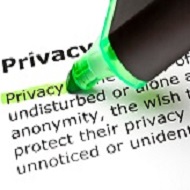The IRS has just announced that certain exempt organizations will no longer need to provide donor information on their Form 990s. This does not affect the requirements for 501(c)(3) organizations—by far the most common type of exempt organization—but does affect 501(c)(4) social welfare organizations and 501(c)(6) trade associations.
As background, reporting of donor information to the IRS has long been a statutory requirement for 501(c)(3)s, and the IRS then extended that requirement by regulation to other types of exempts. However, most exempt organizations other than 501(c)(3)s are not eligible for tax-deductible contributions, so arguably donor information was not really relevant to the IRS for these organizations.
“Americans shouldn’t be required to send the IRS information that it doesn’t need to effectively enforce our tax laws, and the IRS simply does not need tax returns with donor names and addresses to do its job in this area,” said U.S. Treasury Secretary Steven T. Mnuchin. “It is important to emphasize that this change will in no way limit transparency. The same information about tax-exempt organizations that was previously available to the public will continue to be available, while private taxpayer information will be better protected. The IRS’s new policy for certain tax-exempt organizations will make our tax system simpler and less susceptible to abuse.”
To clarify, although exempt organizations reported the donor information to the IRS, in almost all cases that information was not available to the public. Only private foundations need to make this information publicly available, while other types of exempt organizations could supply a Form 990 to the public that did not include donor information and satisfy their disclosure requirements.
The IRS has noted that not collecting the information will protect taxpayers by reducing the risk of inadvertent disclosure or misuse of confidential information. However, there are concerns that eliminating this requirement will mean more “dark money” will flow through these types of organizations for use in the political campaign area. In particular, use of foreign money in elections was called out in a letter from several nonprofits to the House Ways and Means Committee:
“Eliminating the existing requirement for disclosure to the IRS of donations to 501(c)(4) “social welfare” groups would open the door wide for secret, unaccountable money from foreign governments, foreign corporations and foreign individuals to be illegally laundered into federal elections through 501(c)(4) groups. While foreign money cannot be legally given or spent in our elections, the only real protection we currently have against the use of 501(c)(4) groups to launder foreign money into federal elections is that 501(c)(4) groups must disclose their donors, including foreign donors, to the IRS. This requirement means that 501(c)(4) groups know they can be held accountable if they illegally spend foreign money in U.S. elections. However if donor disclosure to the IRS is eliminated, no one will know whether a 501(c)(4) group has received foreign funds and is illegally spending them in our elections, other than the foreign donors and 501(c)(4) groups involved. There will be no way to hold them accountable for illegally spending foreign money in federal elections.”


